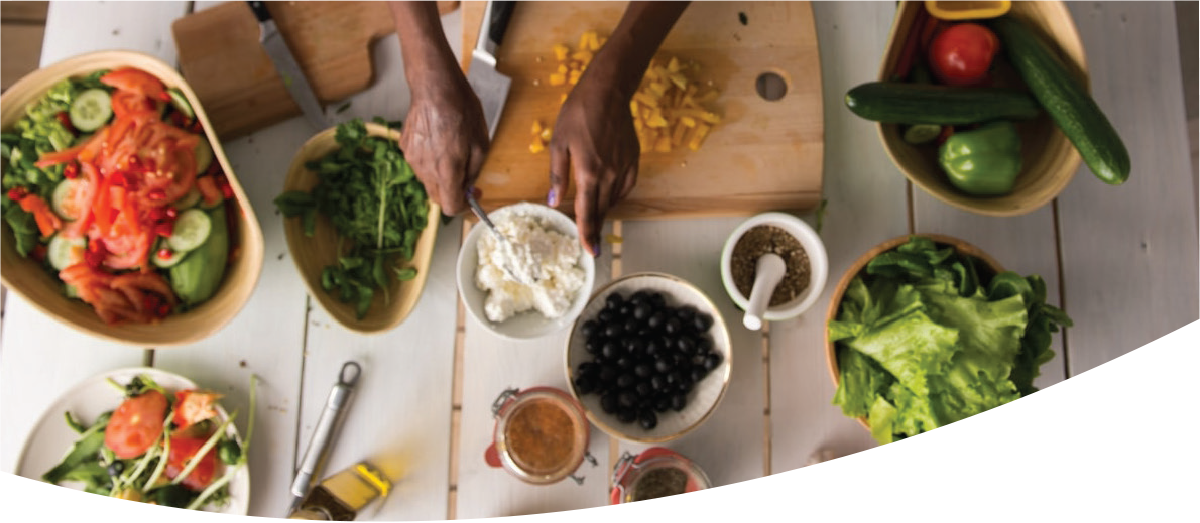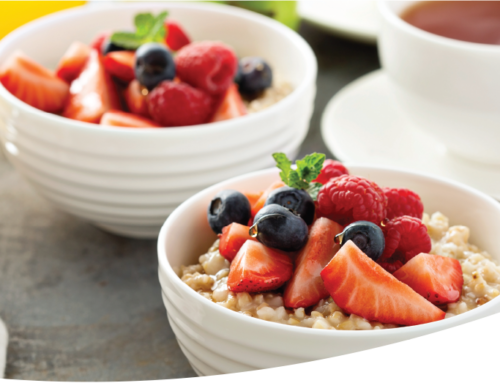What’s the Relationship Between Food and Mood? Eating to be Healthy AND Happy
Food is fuel. If you’re eating healthy, organic food, and drinking plenty of water, chances are pretty good that you’re feeling pretty good. If your diet revolves around fast food, junk food, and processed food, you’re depriving your system of key nutrients that promote optimal mental and physical health.
Food has a big role in how we feel. Certain foods might make us happy. Other foods might bring us down. Think about reaching for chocolate when you’re feeling blue. You might feel better after eating it, but is it the food, or is it your mind doing a happy number on you because you’re eating chocolate?
A study published in the Journal of Psychopharmacology found that individuals who drank a daily polyphenol-rich chocolate beverage reported feeling more content than those who didn’t. For people who understand the mood power of food, the finding was no surprise. Dark chocolate has long been known as a happy food because it increases brain serotonin, an important chemical and neurotransmitter in the human body believed to help regulate mood. Low serotonin levels have been linked to depression, and many antidepressant medications work to enhance serotonin levels. Chocolate or cocoa does that very well. Soluble fiber in the form of organic beans, Brussels sprouts, peas, pears, and oats also helps increase serotonin.
Got the midday munchies? It’s easy to reach for foods such as candy, sugared soda, white bread, and crackers—carbohydrates with refined sugar. But they don’t offer much in terms of beneficial nutrients. Yes, they taste great, but that quick sugar buzz followed by a sugar low can contribute to fatigue, bad moods, an unhealthy gut, and higher blood sugar levels. Instead, go for slow-release foods such as organic rice, oats, wholegrain bread and cereals, nuts, and seeds. Protein—found in such foods as organic Greek yogurt, eggs, poultry, seafood, and tofu—can also absorb carbohydrates, keep blood sugar stable and help sustain energy. And the more energy you have, the better your mood.
Which other foods affect mood? Bananas do. A daily banana delivers up to 10 milligrams of dopamine, a chemical that provides pleasure and a positive mood effect. Include omega-3 fatty acids in the mood-enhancing category. Found in salmon, sardines and fish oil supplements, omega-3 provides the fatty acid DHA, which our bodies can’t produce. It’s reported that DHA has a beneficial effect on mood. So do coffee and tea; caffeine is a natural mood lifter, as are blueberries and blackberries. They contain anthocyanin, a heart-healthy antioxidant.
Vitamins and fiber also play a role in how you might feel. A lack of vitamin D, for example, can cause some people to feel seasonal affective disorder (SAD) in the winter. Sunshine is a natural source of vitamin D, so are foods such as fatty fish, eggs, and shrimp. To counter depression, make sure your diet has plenty of organic broccoli, lentils, oatmeal, and dark leafy vegetables
Given a choice, you may want to stay away from foods that can bring you down. Sugar is a villain that can cause mood swings and drain energy. Processed foods also merit a caution flag because the trans-fats that are often added to them can clog arteries and boost irritability and aggression.
Once you understand the relationship between what you eat and how you feel, it’s easier to take charge of your diet and your mood. It’s important to have healthy meals and snacks at regular intervals. Take the expression “Garbage in, garbage out” straight to the recycler and look for healthy, organic food choices. Inspired Organics has an entire product line to choose from.




